Central Auckland > Public Hospital Services > Te Whatu Ora – Health New Zealand Te Toka Tumai Auckland >
General Surgery | Auckland | Te Toka Tumai | Te Whatu Ora
Public Service, General Surgery, Bariatric (Weight Loss) Surgery
Description
What is General Surgery?
Auckland and Greenlane Department of General Surgery
The Auckland Hospital Department of Surgery provides secondary surgical care for the Central Auckland population of approximately 400,000. It is also a major tertiary referral centre for the region and nationally.
Auckland Hospital is closely associated with Auckland University School of Medicine and is a major teaching campus for the University and various technical institutes.
Consultants
-

Dr Nagham Al-Mozany
Colorectal and General Surgeon
-
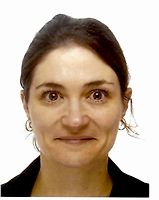
Dr Louise Barbier
-

Associate Professor Adam Bartlett
General and Liver Surgeon
-

Mr Grant Beban
General, Upper Gastrointestinal and Bariatric Surgeon
-
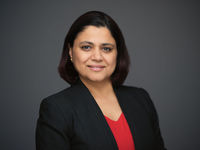
Dr Savitha Bhagvan
Acute, Trauma and General Surgeon
-

Professor Ian Bissett
General and Colorectal Surgeon
-

Dr Vanessa Blair
Acute and General Surgeon
-
Mr Peter Carr-Boyd
Liver Transplant/Hepatobiliary/General Surgeon
-

Dr Ian Civil
General Surgeon and Trauma Specialist
-

Mr Rowan Collinson
General and Colorectal Surgeon
-

Mr Isaac Cranshaw
General, Breast, Endocrine, Sarcoma and Melanoma Surgeon
-

Mr Nicholas Evennett
General and Upper Gastrointestinal Surgeon
-

Dr Jamish Gandhi
Colorectal and General Surgeon
-

Mr Julian Hayes
General and Colorectal Surgeon
-

Mr Li Hsee
CLINICAL DIRECTOR Trauma and Acute Surgeon
-

Mr Peter Johnston
General Surgeon, Hepatobiliary and Transplant
-

Mr Wayne Jones
General, Breast and Endocrine Surgeon
-

Prof John McCall
General and Hepatobiliary Surgeon
-
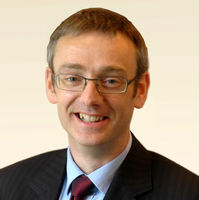
Mr Arend Merrie
General and Colorectal Surgeon
-

Dr Diederik Meylemans
Acute and General Surgeon
-

Mr Alexander Ng
General Surgeon, Breast and Trauma Surgeon
-

Mr Michael Puttick
Oncoplastic Breast and Acute General Surgeon
-

Mr Rishi Ram
General Surgeon
-
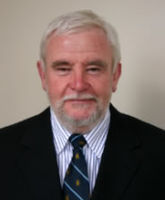
Professor Jim Shaw
General Endocrine and Melanoma Surgeon
-

Mr Ashish Taneja
General Surgeon, Acute Surgical Unit and Trauma Surgeon
-
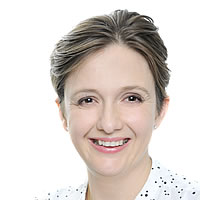
Dr Eletha Taylor
Breast, Melanoma & General Surgeon
-

Professor John Windsor
General and Hepatobiliary Surgeon
Referral Expectations
Procedures / Treatments
General surgery covers breast diseases including breast cancer. These conditions are often initially dealt with in a specialised breast clinic which can perform several investigations (e.g. mammography, ultrasound, needle biopsy) during the initial outpatient clinic visit. For information on breast cancer updates, visit The Breast Cancer Foundation.
General surgery covers breast diseases including breast cancer. These conditions are often initially dealt with in a specialised breast clinic which can perform several investigations (e.g. mammography, ultrasound, needle biopsy) during the initial outpatient clinic visit. For information on breast cancer updates, visit The Breast Cancer Foundation.
General surgery covers breast diseases including breast cancer. These conditions are often initially dealt with in a specialised breast clinic which can perform several investigations (e.g. mammography, ultrasound, needle biopsy) during the initial outpatient clinic visit.
For information on breast cancer updates, visit The Breast Cancer Foundation.
Abnormalities of the endocrine system treated by general surgery include disorders of the pancreas and adrenal glands in the abdomen and the thyroid and parathyroid glands in the neck. These are often very complex conditions requiring extensive investigations. If surgery is required it is often quite complicated and will usually mean a stay in hospital for several days or even longer.
Abnormalities of the endocrine system treated by general surgery include disorders of the pancreas and adrenal glands in the abdomen and the thyroid and parathyroid glands in the neck. These are often very complex conditions requiring extensive investigations. If surgery is required it is often quite complicated and will usually mean a stay in hospital for several days or even longer.
Abnormalities of the endocrine system treated by general surgery include disorders of the pancreas and adrenal glands in the abdomen and the thyroid and parathyroid glands in the neck. These are often very complex conditions requiring extensive investigations. If surgery is required it is often quite complicated and will usually mean a stay in hospital for several days or even longer.
Conditions of the gut dealt with by general surgery include disorders of the oesophagus, stomach, small bowel, large bowel and anus. These range from complex conditions such as ulceration or cancer in the bowel to fairly minor conditions such as haemorrhoids. Many of the more major conditions such as bowel cancer will require surgery, or sometimes treatment with medication, chemotherapy or radiotherapy. Haemorrhoids are a condition where the veins under the lining of the anus are congested and enlarged. Referral to the Hospital is only indicated for haemorrhoids which do not settle with conservative treatment and have persisted > 6 weeks or have troublesome bleeding. Injection or banding can be performed in the clinic but larger haemorrhoids can require surgery.
Conditions of the gut dealt with by general surgery include disorders of the oesophagus, stomach, small bowel, large bowel and anus. These range from complex conditions such as ulceration or cancer in the bowel to fairly minor conditions such as haemorrhoids. Many of the more major conditions such as bowel cancer will require surgery, or sometimes treatment with medication, chemotherapy or radiotherapy. Haemorrhoids are a condition where the veins under the lining of the anus are congested and enlarged. Referral to the Hospital is only indicated for haemorrhoids which do not settle with conservative treatment and have persisted > 6 weeks or have troublesome bleeding. Injection or banding can be performed in the clinic but larger haemorrhoids can require surgery.
Conditions of the gut dealt with by general surgery include disorders of the oesophagus, stomach, small bowel, large bowel and anus. These range from complex conditions such as ulceration or cancer in the bowel to fairly minor conditions such as haemorrhoids. Many of the more major conditions such as bowel cancer will require surgery, or sometimes treatment with medication, chemotherapy or radiotherapy.
Disorders of the salivary glands may be dealt with by the general surgical department or the ENT (ORL) department depending on the local policy.
Disorders of the salivary glands may be dealt with by the general surgical department or the ENT (ORL) department depending on the local policy.
Disorders of the salivary glands may be dealt with by the general surgical department or the ENT (ORL) department depending on the local policy.
General surgery covers some disorders of the liver and biliary system. The most common of these is pain caused by gallstones. These are formed if the gallbladder is not working properly, and the standard treatment is to remove the gallbladder (cholecystectomy). This procedure is usually performed using a laparoscopic (keyhole) approach.
General surgery covers some disorders of the liver and biliary system. The most common of these is pain caused by gallstones. These are formed if the gallbladder is not working properly, and the standard treatment is to remove the gallbladder (cholecystectomy). This procedure is usually performed using a laparoscopic (keyhole) approach.
General surgery covers some disorders of the liver and biliary system. The most common of these is pain caused by gallstones. These are formed if the gallbladder is not working properly, and the standard treatment is to remove the gallbladder (cholecystectomy). This procedure is usually performed using a laparoscopic (keyhole) approach.
A hernia exists where part of the abdominal wall is weakened, and the contents of the abdomen push through to the outside. This is most commonly seen in the groin area but can occur in other places. Surgical treatment is usually quite straightforward and involves returning the abdominal contents to the inside and then reinforcing the abdominal wall in some way.
A hernia exists where part of the abdominal wall is weakened, and the contents of the abdomen push through to the outside. This is most commonly seen in the groin area but can occur in other places. Surgical treatment is usually quite straightforward and involves returning the abdominal contents to the inside and then reinforcing the abdominal wall in some way.
A hernia exists where part of the abdominal wall is weakened, and the contents of the abdomen push through to the outside. This is most commonly seen in the groin area but can occur in other places. Surgical treatment is usually quite straightforward and involves returning the abdominal contents to the inside and then reinforcing the abdominal wall in some way.
Obesity is one of the main causes of poor health. Morbid obesity is a term that is used when weight has becomes such a problem it severely affects a person’s health. Individuals are considered morbidly obese if their Body Mass Index (BMI) is 40 or higher and severely obese if the BMI is between 35 to 39. Surgery is increasingly recognised as an effective treatment for those who are severely or morbidly obese and have been unable to lose weight and keep it off. It can be called bariatric, obesity, metabolic or weight loss surgery and it refers to operations designed to help reduce a person’s weight and improve their health. The operations result in either restricting the amount of food people are able to eat, absorb or both. Surgery is not for everyone and it involves not just a degree of risk but a commitment to a permanent lifestyle change. See the ‘for more information’ section below for further details about the surgery. Who can have bariatric surgery? We consider people for surgery if they: Have a BMI of 40 or more Have a BMI of 35 or higher and have other obesity-related severe diseases that could be improved such as heart disease, type 2 diabetes or obstructive sleep apnoea Have previously failed attempts to lose weight Understand what the surgery involves, what to expect before and afterwards and are committed to a permanent lifestyle change (diet and exercise) Follow this link to calculate your BMI If an individual considering the surgery smokes, they are encouraged to quit prior to surgery. Assistance is available through: Quitline Te Whatu Ora Smoke Free Service Your doctor will need to refer you for surgery and then the hospital will confirm if you will be considered for surgery or not as even though you may meet the criteria, bariatric surgery is provided through the DHBs for only a relatively small number of people each year. Patients are prioritised using a tool provided by the Ministry of Health to identify who would benefit most from the surgery. What can be achieved with bariatric surgery? Bariatric surgery may help to reduce excess weight but it is not an easy option or a quick fix. The surgery can help to prevent diseases that being obese can cause and can add years to the life of the patient. However, it takes hard work and lifelong changes to eating and physical activity to achieve and maintain weight loss. The surgery itself also carries a risk of complications or problems. These risks need to be balanced against the benefits that surgery can bring in improving the quality of life. What are the steps in the process? Referral Referred to the District Health Board (DHB) Considered against the Ministry of Health prioritisation tool and the DHB criteria Invited to patient information seminar Acceptance into the programme Preparing for Surgery Full patient assessment Consultations with specialists Pre-surgery lifestyle changes goal setting Surgery Type of surgery confirmed Surgery date confirmed Prescribed weight loss programme prior to surgery Following Surgery Follow-up appointments with specialists Monitoring of lifestyle changes Support from friends and family For more information Talk with your doctor to discuss your options and if you wish to be referred for bariatric surgery. Go to Health Navigator for more information and links to further details. Contact us: Bariatric Clinical Nurse Specialist: Elaine Yi – PLEASE NOTE REFERRALS WILL ONLY BE ACCEPTED FROM PATIENTS IN THE TE TOKA TUMAI AUCKLAND AREA. If you would like support from our Māori or Pacific health teams, contact us at: Māori Health Services - He Kamaka Waiora Phone 09 486 8324 ext 3553 Monday to Friday 8am – 5pm Pacific Health Tautai Fakataha Service Hours Monday to Friday 8am – 4.30pm Contact our support team Tautai Fakataha Waitemata DHB Duty Phone: 021 726 076 Tautai Fakataha Auckland DHB Duty Phone: 021 725 932 After Hours urgent inquiry 09 486 8920, ask for Pacific Health ‘inpatient on call’
Obesity is one of the main causes of poor health. Morbid obesity is a term that is used when weight has becomes such a problem it severely affects a person’s health. Individuals are considered morbidly obese if their Body Mass Index (BMI) is 40 or higher and severely obese if the BMI is between 35 to 39. Surgery is increasingly recognised as an effective treatment for those who are severely or morbidly obese and have been unable to lose weight and keep it off. It can be called bariatric, obesity, metabolic or weight loss surgery and it refers to operations designed to help reduce a person’s weight and improve their health. The operations result in either restricting the amount of food people are able to eat, absorb or both. Surgery is not for everyone and it involves not just a degree of risk but a commitment to a permanent lifestyle change. See the ‘for more information’ section below for further details about the surgery. Who can have bariatric surgery? We consider people for surgery if they: Have a BMI of 40 or more Have a BMI of 35 or higher and have other obesity-related severe diseases that could be improved such as heart disease, type 2 diabetes or obstructive sleep apnoea Have previously failed attempts to lose weight Understand what the surgery involves, what to expect before and afterwards and are committed to a permanent lifestyle change (diet and exercise) Follow this link to calculate your BMI If an individual considering the surgery smokes, they are encouraged to quit prior to surgery. Assistance is available through: Quitline Te Whatu Ora Smoke Free Service Your doctor will need to refer you for surgery and then the hospital will confirm if you will be considered for surgery or not as even though you may meet the criteria, bariatric surgery is provided through the DHBs for only a relatively small number of people each year. Patients are prioritised using a tool provided by the Ministry of Health to identify who would benefit most from the surgery. What can be achieved with bariatric surgery? Bariatric surgery may help to reduce excess weight but it is not an easy option or a quick fix. The surgery can help to prevent diseases that being obese can cause and can add years to the life of the patient. However, it takes hard work and lifelong changes to eating and physical activity to achieve and maintain weight loss. The surgery itself also carries a risk of complications or problems. These risks need to be balanced against the benefits that surgery can bring in improving the quality of life. What are the steps in the process? Referral Referred to the District Health Board (DHB) Considered against the Ministry of Health prioritisation tool and the DHB criteria Invited to patient information seminar Acceptance into the programme Preparing for Surgery Full patient assessment Consultations with specialists Pre-surgery lifestyle changes goal setting Surgery Type of surgery confirmed Surgery date confirmed Prescribed weight loss programme prior to surgery Following Surgery Follow-up appointments with specialists Monitoring of lifestyle changes Support from friends and family For more information Talk with your doctor to discuss your options and if you wish to be referred for bariatric surgery. Go to Health Navigator for more information and links to further details. Contact us: Bariatric Clinical Nurse Specialist: Elaine Yi – PLEASE NOTE REFERRALS WILL ONLY BE ACCEPTED FROM PATIENTS IN THE TE TOKA TUMAI AUCKLAND AREA. If you would like support from our Māori or Pacific health teams, contact us at: Māori Health Services - He Kamaka Waiora Phone 09 486 8324 ext 3553 Monday to Friday 8am – 5pm Pacific Health Tautai Fakataha Service Hours Monday to Friday 8am – 4.30pm Contact our support team Tautai Fakataha Waitemata DHB Duty Phone: 021 726 076 Tautai Fakataha Auckland DHB Duty Phone: 021 725 932 After Hours urgent inquiry 09 486 8920, ask for Pacific Health ‘inpatient on call’
Obesity is one of the main causes of poor health. Morbid obesity is a term that is used when weight has becomes such a problem it severely affects a person’s health. Individuals are considered morbidly obese if their Body Mass Index (BMI) is 40 or higher and severely obese if the BMI is between 35 to 39.
Surgery is increasingly recognised as an effective treatment for those who are severely or morbidly obese and have been unable to lose weight and keep it off. It can be called bariatric, obesity, metabolic or weight loss surgery and it refers to operations designed to help reduce a person’s weight and improve their health.
The operations result in either restricting the amount of food people are able to eat, absorb or both. Surgery is not for everyone and it involves not just a degree of risk but a commitment to a permanent lifestyle change. See the ‘for more information’ section below for further details about the surgery.
Who can have bariatric surgery?
We consider people for surgery if they:
- Have a BMI of 40 or more
- Have a BMI of 35 or higher and have other obesity-related severe diseases that could be improved such as heart disease, type 2 diabetes or obstructive sleep apnoea
- Have previously failed attempts to lose weight
- Understand what the surgery involves, what to expect before and afterwards and are committed to a permanent lifestyle change (diet and exercise)
Follow this link to calculate your BMI
If an individual considering the surgery smokes, they are encouraged to quit prior to surgery. Assistance is available through:
Your doctor will need to refer you for surgery and then the hospital will confirm if you will be considered for surgery or not as even though you may meet the criteria, bariatric surgery is provided through the DHBs for only a relatively small number of people each year. Patients are prioritised using a tool provided by the Ministry of Health to identify who would benefit most from the surgery.
What can be achieved with bariatric surgery?
Bariatric surgery may help to reduce excess weight but it is not an easy option or a quick fix. The surgery can help to prevent diseases that being obese can cause and can add years to the life of the patient. However, it takes hard work and lifelong changes to eating and physical activity to achieve and maintain weight loss.
The surgery itself also carries a risk of complications or problems. These risks need to be balanced against the benefits that surgery can bring in improving the quality of life.
What are the steps in the process?
| Referral |
|
| Preparing for Surgery |
|
| Surgery |
|
| Following Surgery |
|
For more information
Talk with your doctor to discuss your options and if you wish to be referred for bariatric surgery.
Go to Health Navigator for more information and links to further details.
Contact us:
Bariatric Clinical Nurse Specialist: Elaine Yi –
PLEASE NOTE REFERRALS WILL ONLY BE ACCEPTED FROM PATIENTS IN THE TE TOKA TUMAI AUCKLAND AREA.
If you would like support from our Māori or Pacific health teams, contact us at:
Māori Health Services - He Kamaka Waiora
Phone 09 486 8324 ext 3553
Monday to Friday 8am – 5pm
Pacific Health Tautai Fakataha
Service Hours
Monday to Friday 8am – 4.30pm
Contact our support team
Tautai Fakataha Waitemata DHB Duty Phone: 021 726 076
Tautai Fakataha Auckland DHB Duty Phone: 021 725 932
After Hours urgent inquiry
09 486 8920, ask for Pacific Health ‘inpatient on call’
General surgery offers an extensive skin lesion removal service at Auckland Hospital and Greenlane Outpatients. If straightforward lesions can be done in the patient's own community by experienced GPs. If complicated or preferred the patient will be seen at clinic, assessed and booked for surgery under local at Greenlane or for more complex cases under anaesthesia at Auckland or Greenlane. General Surgery liaises with the Dermatology department. The most common skin cancer is Basal Cell or BCC; rarely fatal but if ignored can be disfiguring and is best treated early. Next is Squamous Cell Cancer or SCC which should also be seen early and treated. If ignored it can lead to mortality. These cancers have different features and are usually in sun-exposed areas particularly the face, limbs and trunk, but the diagnosis is made by the pathologist after the removal of the skin lesion. Melanoma is potentially fatal if undetected. Usually, a dark lesion which is changing anywhere on the body, not only sun-exposed areas. Treatment is always by removal and depending on the pathology report further surgery may take place. Features to be aware of from the national guidelines are below: Melanoma MALIGNANT MELANOMA OF SKIN EITHER: Skin lesion AND three or more of the following features: A. Asymmetry of shape, structure or colour B. Border irregularity C. Colour variation / multiple colours D. Different from other lesions (‘ugly duckling’) E. Evolving, changing Risk factors Personal history of melanoma Family history of 2+ first degree relatives <40 yrs diagnosed with melanoma OR: Dermoscopy of skin lesion is suspicious for melanoma Y/N Your GP can refer if any of these features are present or may remove the lesion and seek further advice from General Surgery. Currently digital photos are used to assist the hospital in triage. Mole mapping is another useful option. If you are worried about a skin lesion on yourself or others, always get checked.
General surgery offers an extensive skin lesion removal service at Auckland Hospital and Greenlane Outpatients. If straightforward lesions can be done in the patient's own community by experienced GPs. If complicated or preferred the patient will be seen at clinic, assessed and booked for surgery under local at Greenlane or for more complex cases under anaesthesia at Auckland or Greenlane. General Surgery liaises with the Dermatology department. The most common skin cancer is Basal Cell or BCC; rarely fatal but if ignored can be disfiguring and is best treated early. Next is Squamous Cell Cancer or SCC which should also be seen early and treated. If ignored it can lead to mortality. These cancers have different features and are usually in sun-exposed areas particularly the face, limbs and trunk, but the diagnosis is made by the pathologist after the removal of the skin lesion. Melanoma is potentially fatal if undetected. Usually, a dark lesion which is changing anywhere on the body, not only sun-exposed areas. Treatment is always by removal and depending on the pathology report further surgery may take place. Features to be aware of from the national guidelines are below: Melanoma MALIGNANT MELANOMA OF SKIN EITHER: Skin lesion AND three or more of the following features: A. Asymmetry of shape, structure or colour B. Border irregularity C. Colour variation / multiple colours D. Different from other lesions (‘ugly duckling’) E. Evolving, changing Risk factors Personal history of melanoma Family history of 2+ first degree relatives <40 yrs diagnosed with melanoma OR: Dermoscopy of skin lesion is suspicious for melanoma Y/N Your GP can refer if any of these features are present or may remove the lesion and seek further advice from General Surgery. Currently digital photos are used to assist the hospital in triage. Mole mapping is another useful option. If you are worried about a skin lesion on yourself or others, always get checked.
General surgery offers an extensive skin lesion removal service at Auckland Hospital and Greenlane Outpatients.
If straightforward lesions can be done in the patient's own community by experienced GPs.
If complicated or preferred the patient will be seen at clinic, assessed and booked for surgery under local at Greenlane or for more complex cases under anaesthesia at Auckland or Greenlane.
General Surgery liaises with the Dermatology department.
The most common skin cancer is Basal Cell or BCC; rarely fatal but if ignored can be disfiguring and is best treated early.
Next is Squamous Cell Cancer or SCC which should also be seen early and treated. If ignored it can lead to mortality.
These cancers have different features and are usually in sun-exposed areas particularly the face, limbs and trunk, but the diagnosis is made by the pathologist after the removal of the skin lesion.
Melanoma is potentially fatal if undetected. Usually, a dark lesion which is changing anywhere on the body, not only sun-exposed areas. Treatment is always by removal and depending on the pathology report further surgery may take place.
Features to be aware of from the national guidelines are below:
Melanoma
|
MALIGNANT MELANOMA OF SKIN |
|
|
EITHER: Skin lesion AND three or more of the following features: |
|
|
A. Asymmetry of shape, structure or colour |
|
|
B. Border irregularity |
|
|
C. Colour variation / multiple colours |
|
|
D. Different from other lesions (‘ugly duckling’) |
|
|
E. Evolving, changing |
|
|
Risk factors |
|
|
Personal history of melanoma |
|
|
Family history of 2+ first degree relatives <40 yrs diagnosed with melanoma |
|
|
OR: |
|
|
Dermoscopy of skin lesion is suspicious for melanoma |
Y/N |
Your GP can refer if any of these features are present or may remove the lesion and seek further advice from General Surgery. Currently digital photos are used to assist the hospital in triage. Mole mapping is another useful option.
If you are worried about a skin lesion on yourself or others, always get checked.
Other
Te Whatu Ora Q&A for planned care services.
For information about intestinal failure see the National Intestinal Failure Service page.
Website
Contact Details
Auckland City Hospital
Central Auckland
-
Phone
(09) 367 0000
Website
Patient enquiries: (09) 375 4300
Known extension/pager numbers: (09) 307 4949
Outpatient appointments and surgical booking enquiries: (09) 638 0400 or scheduling@adhb.govt.nz
Mental Health Services 24 Hour Crisis Line: 0800 800 717
GP Help Desk: (09) 307 2800
2 Park Road
Grafton
Auckland 1023
Street Address
2 Park Road
Grafton
Auckland 1023
Postal Address
Private Bag 92 024
Auckland Mail Centre
Auckland 1142
Was this page helpful?
This page was last updated at 11:26AM on January 15, 2024. This information is reviewed and edited by General Surgery | Auckland | Te Toka Tumai | Te Whatu Ora.

